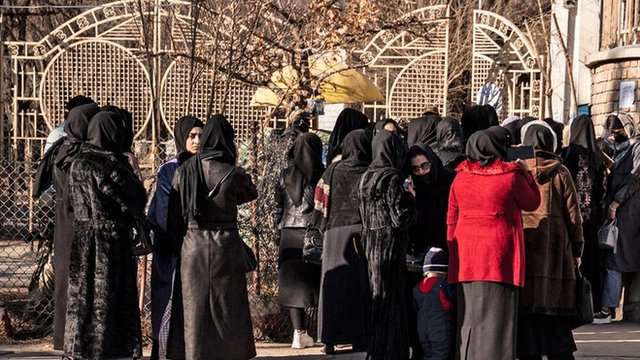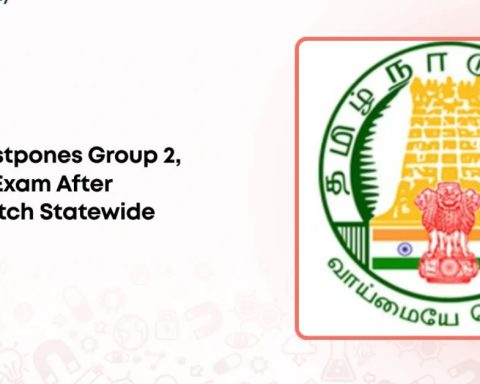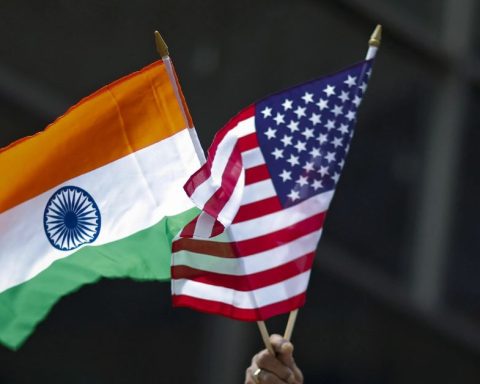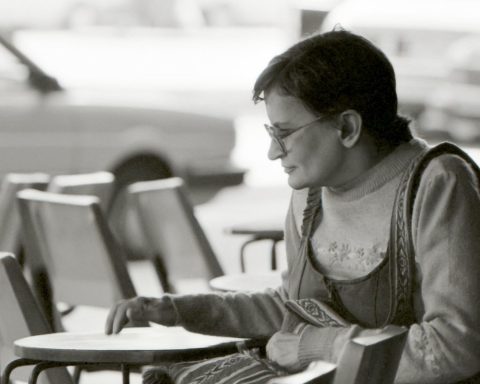December 22, 2022, 9:55 PM
December 22, 2022, 9:55 PM
It’s an order that girls and women everywhere in Afghanistan have feared, ever since the Taliban’s return to power.
On Wednesday, young women wearing hijabs or Islamic headscarves showed up at the gates of their universities only to be denied entry by Taliban guards.
The footage shows groups of students crying as they are removed from the venue.
After excluding girls from most secondary schools in the past 16 months, this week the Taliban also banned university education for women.
“They have destroyed the only bridge that could have connected me to my future,” a Kabul University student told the BBC.
“How can I react? I thought I could study and change my future or bring light into my life, but they have destroyed it”.
Authorities issued the order on Tuesday – and by the next day, other places of learning, including Islamic religious colleges and private colleges in several provinces, were also complying with the ruling.
Sources in three provinces – Takhar in the north, Ghazni in the southeast and the capital Kabul – confirmed to the BBC that the Taliban had prevented girls from attending private education centers there.
Apparently all avenues of formal education for women are being closed.
That motivated some women to dare to protest on the streets of Kabul on Wednesday – a dangerous move given the history of arrests of protesters by the Taliban.
Small demonstrations were quickly suppressed by Taliban officials, who detained several women and some journalists.
On Thursday, the Taliban government’s Education Minister Neda Mohammed Nadim said the reason Afghan women are being banned from universities is because they “don’t follow the dress code” and because of the “coeducation” system in where men and women share spaces.
This generation had thought they were lucky – getting the education their mothers, older sisters, and cousins had been denied.
Now instead they’re watching their future collapse.
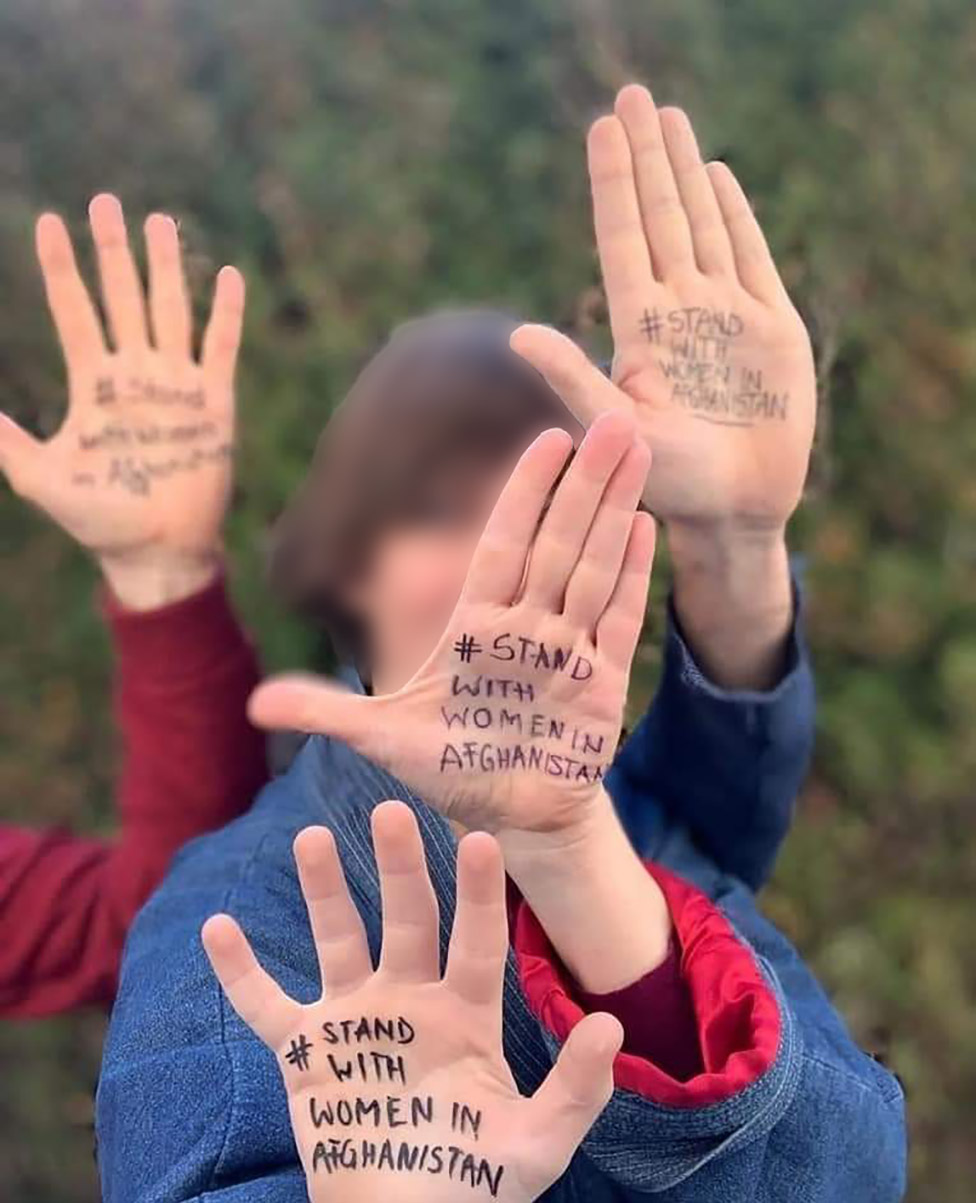
The Taliban, which began as a hardline Islamic militant group, had promised to respect women’s rights when they returned to power in August 2021 –after the horrors of his previous regime between 1996-2001, when women could not work or study.
But her latest decree removes whatever scant freedom or rights women had been given after US-led forces left Afghanistan to allow the Taliban to return.
However, Just three months ago, the Taliban had agreed to allow the tests to take place. admission to college for women.
Thousands of girls and women showed up in provinces across the country.
Many had studied in secretin their homes or risking going to clandestine private schools created for girls.
The danger was always present. During some of the exams, schools were targeted by bomb attacks in which female students died.
Even so, the young women persisted.
Even when, in November, the Taliban imposed last-minute restrictions on certain subjects -vetoing women from taking courses such as economics, engineering and journalism-, they kept trying, many of them applying to study teaching and medicine.
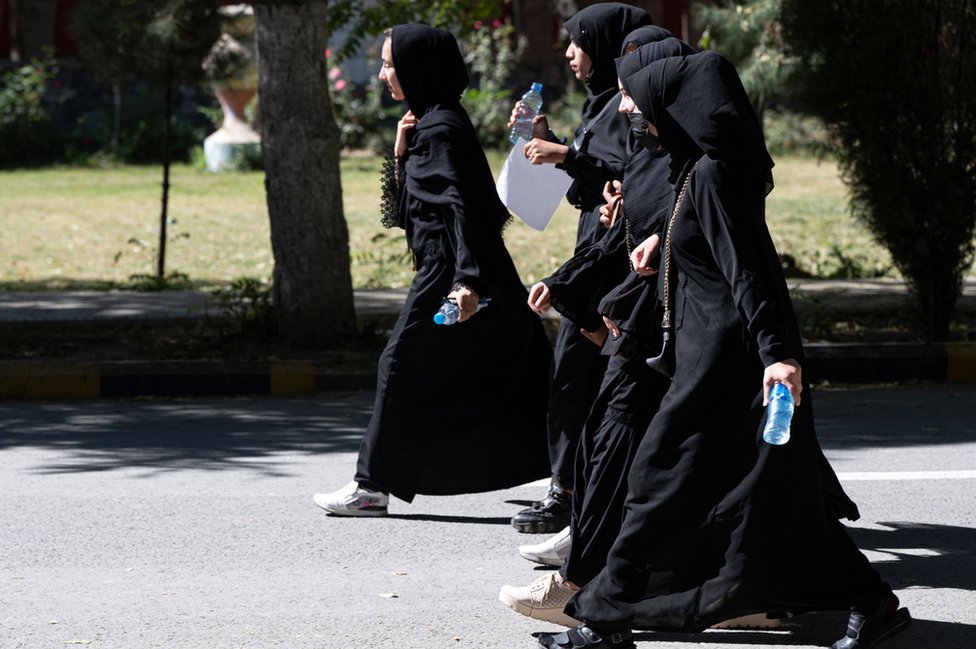
“Why do we always have to be the victims?” another student told the BBC.
“Afghanistan is a poor country. But women in this country have accepted that poverty along with all the other problems.”
Barriers to female education
Female education has long been a controversial issue between the conservative and more moderate factions of the Taliban.
The university veto now points to a victory for the most fundamentalist side of the Taliban, whose supreme leader, Hibatullah Akhundzada, believes that modern education – particularly of women and girls – is wrong according to Islamic teachings.
However, not all members of the movement whoe decree was generated they think like him and there are reports that more moderate officials in cities like Kabul wanted girls over the age of 12 to be able to receive an education.
The decision has had an impact on the future of the entire countryas pointed out by rights defenders.
“No country can prosper when half its population is repressed”, warned US Secretary of State Antony Blinken.
Western countries had insisted on female education as a condition that the Taliban were required to meet if they wanted to be recognized globally.
So far, however, the Taliban have ignored the criticism.
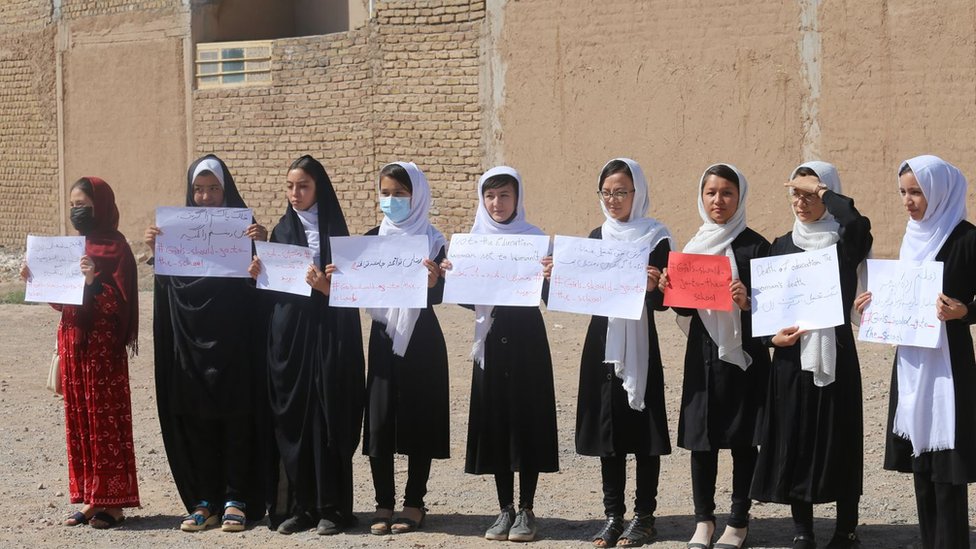
For Afghan families, both at home and around the world, watching their daughters’ futures slip back into “dark age” has ignited fear and anger.
News of the university ban prompted some Afghan activists to publish accounts of their own college graduations -in cap and gown.
The resistance against the Taliban since their return to power has not been enough, they say.
And there has been an increase in the level of restrictions on women in everyday life in the past few weeks. In November, the women in Kabul they were prevented from entering public places such as parks and gyms.
Women are increasingly being confined to their homes by policies tantamount to imprisonment, says the UN.
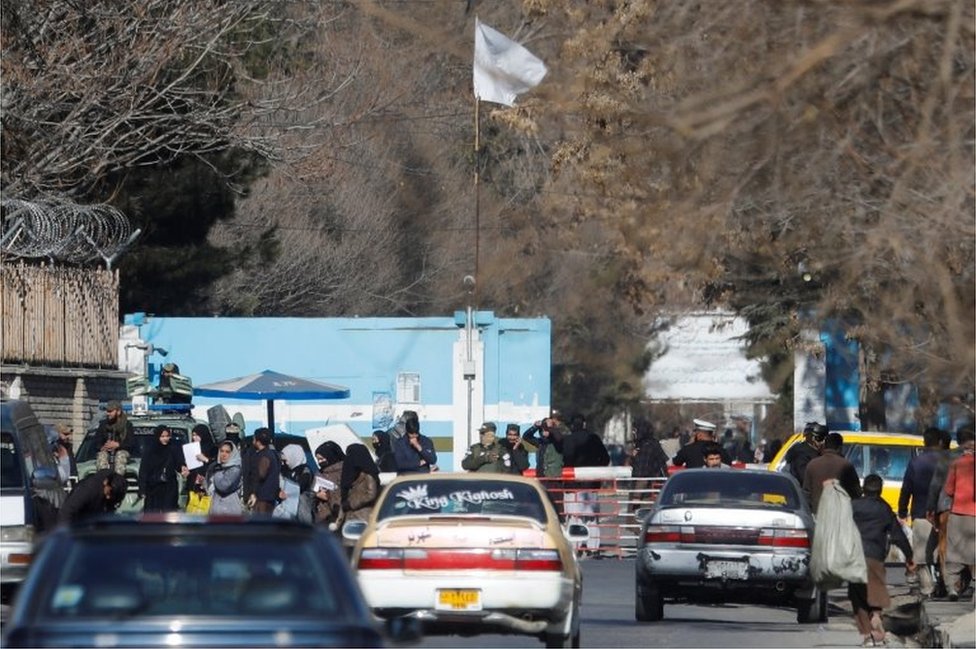
“His actions are not Islamic”
For a law student, the road to higher education seems to have come to an end. Her college course had finished before winter break and was scheduled to restart in March.
But now they won’t let him set foot on campus, “has lost everything” As a scholar of sharia law, lHe told the BBC that he was trying to make sense of it within Islamic teachings.
“The Taliban have taken away the rights that Islam and Allah have given us,” he told the BBC.
“They should go to other Islamic countries and see that their actions are not Islamic. According to what they say, this is in accordance with Sharia law. But why do they want to impose it only on women? Why don’t they apply it to men?”.
Other religious scholars back up his argument.
Nawida Khurasani, one of the few Afghan women to study religion, says that the decree challenges Islamic values.
“It has no place in Islam – because Islam mandates both men and women to have an education,” said Nawida, who now lives in Canada.

Another religious academic the BBC spoke to – an imam living in Afghanistan – agreed that within Islam, both men and women should be able to receive an education.
Despite this, for many observers of Afghanistan, it is futile to try to explain the actions of the Taliban according to the supposed Islamic teachings.
They affirm that the university veto is only the continuation of that movement’s goals of completely suppressing women and take away the freedoms they had in the period between the Taliban regimes.
By closing the door to a university education, the Taliban are completing their control over women.
“Afghanistan is not a country for women, but a cage for women”, said Afghan academic and activist Humaira Qaderi, who lives in the US.
“Afghan women no longer have a social life. The streets are dominated by men,” she says.
“This was the last thing the Taliban could do. But they did it.”
